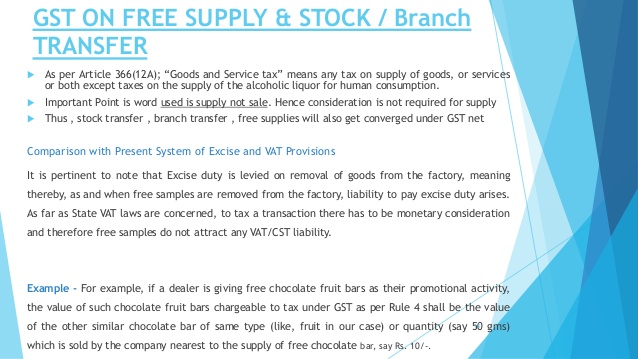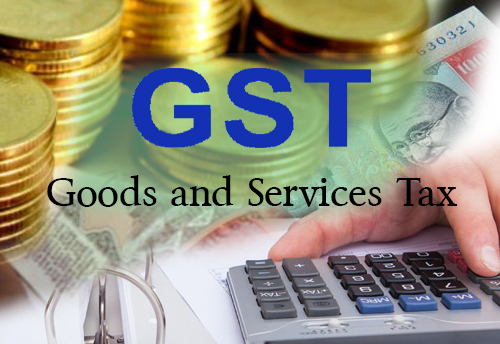Taxation of Works contracts under Goods and Services Tax

 Presently, works contracts involve three types of taxable activities. As such, different aspects of such activity can be taxed as per different statutes.
Presently, works contracts involve three types of taxable activities. As such, different aspects of such activity can be taxed as per different statutes.
As the Government’s date for implementing Goods and Services Tax (GST) in India approaches, expectations are high among them who are actually affected by indirect taxes. One of such expectation involves taxation of works contracts.
Works contracts relate to three kinds of taxable activities as per the current law. It involves supply of goods as well as supply of services. Moreover, if in the process of completing the works contract a new product is created, such manufacture becomes a taxable event.
Currently, the supply of goods is taxable in the form of Value Added Tax and the service is taxable under the provisions of the law relating to service tax.
If a new product appears in the process of completing a works contract, Central Excise duty may be levied upon the same.
So it may be said that different aspects of one activity have the possibility to be taxed by different laws.
Legislative background:
In law, this kind of taxation is covered under the doctrine of aspects. However, there are divergent views of the Supreme Court and the High Court on the applicability of the said theory.
The Hon’ble apex court in the case of BSNL and others vs. Union of India, SC 2006 held that the doctrine of aspects relates to the legislative competence and does not relate to the application of taxation on the same parts of a single transaction.
Present scenario:
The law relating to works contract can be best explained by judicial pronouncements in comparison with legislative action.
The concept of works contracts has undergone many changes by various judicial pronouncements. Interpretations of many courts on similar issues have developed the concept to a great extent.
Special provisions have been made in the law for taxation of works contracts which has however made the subject complex.
People often find it to be very difficult to understand to understand taxation of works contract. GST aims to put an end to the uncertainty for the legislature.
One should looks at the Draft model of GST to understand taxation of works contract.
History of GST:
According to the constitution of India, the States can levy tax on sale or purchase of goods. In the case of Gannon and Dunkerlay, 9 STC 353, the Hon’ble Supreme Court held that the power to tax do not apply to the contract for construction of building even if no building material is transferred during construction.
It was stated that the contract is for work and not for sale of goods. The ruling of the Hon’ble Supreme Court was followed in similar circumstances of indivisible works contracts. This opened the gates for tax planning.
Many tax payers started entering into composite contracts instead of entering into contract for supply of goods to make the supply part of the contract tax free.
To overcome the situation, the Government of India amended the Constitution. After the new amendment to the constitution, the states can levy tax on transfer of property in goods involved in completing works contracts.
Types of works contracts:
The contracts are broadly divided into three kinds namely, contract for sale of goods, works contracts and labour contracts.
However even after amendment, the issue of works contract invokes debates and divergent opinions of courts and experts. There is still confusion among the common people.
After the power has been given to the states to levy tax, many States are levying tax on the total value of works contract.
The Hon’ble Apex Court has categorically pointed out that the works contract has two components. One is Transfer of property in Goods and the other is Labour and services.
The state can levy tax only on value of Goods transferred in executing a works contract.
Initially intention was treated as a necessary requirement for deciding whether a contract was a works contract or not. Thereafter it lost its importance. Even incidental use of goods in service contract became liable to be taxed under the laws relating to Value Added Tax.
By considering works contract as service tax, the taxation process is most likely to be made easier involving less burden at present.
GST has given a scope to provide total solution to many delicate taxation issues so far. It is necessary to clarify many debatable issues so that the works contractors can get relief under GST.
Also read:


 Sales Tax For E-Commerce: 3 Things Small Businesses Should Know
Sales Tax For E-Commerce: 3 Things Small Businesses Should Know  What Is The GST Liability on Free Supply of Goods and Services?
What Is The GST Liability on Free Supply of Goods and Services?  Some FAQs about GST- Understanding Scope and Provisions of GST
Some FAQs about GST- Understanding Scope and Provisions of GST  Understanding the Reverse Charge mechanism under GST and IGST?
Understanding the Reverse Charge mechanism under GST and IGST?  Pros and Cons of GST- Is Ushering in of GST worth Celebrating as media wants us to believe?
Pros and Cons of GST- Is Ushering in of GST worth Celebrating as media wants us to believe?  Arrests and Detention Provisions under GST in Detail- Are these justified
Arrests and Detention Provisions under GST in Detail- Are these justified  ITAT Amritsar: No Section 269SS Violation for One-Time Cash Payment Before Sub-Registrar
ITAT Amritsar: No Section 269SS Violation for One-Time Cash Payment Before Sub-Registrar  Tax Officials Unleash Digital Dragnet: How New Raid Powers Redefine Privacy, Property Rights in India and likely to Fuel Corruption
Tax Officials Unleash Digital Dragnet: How New Raid Powers Redefine Privacy, Property Rights in India and likely to Fuel Corruption  Income Tax Department Rewards for Reporting Tax Evasion: A Comprehensive Guide
Income Tax Department Rewards for Reporting Tax Evasion: A Comprehensive Guide  Forfeiture of Gratuity by Employer- What are the Remedies for an employee- Can employer be challenged?
Forfeiture of Gratuity by Employer- What are the Remedies for an employee- Can employer be challenged?